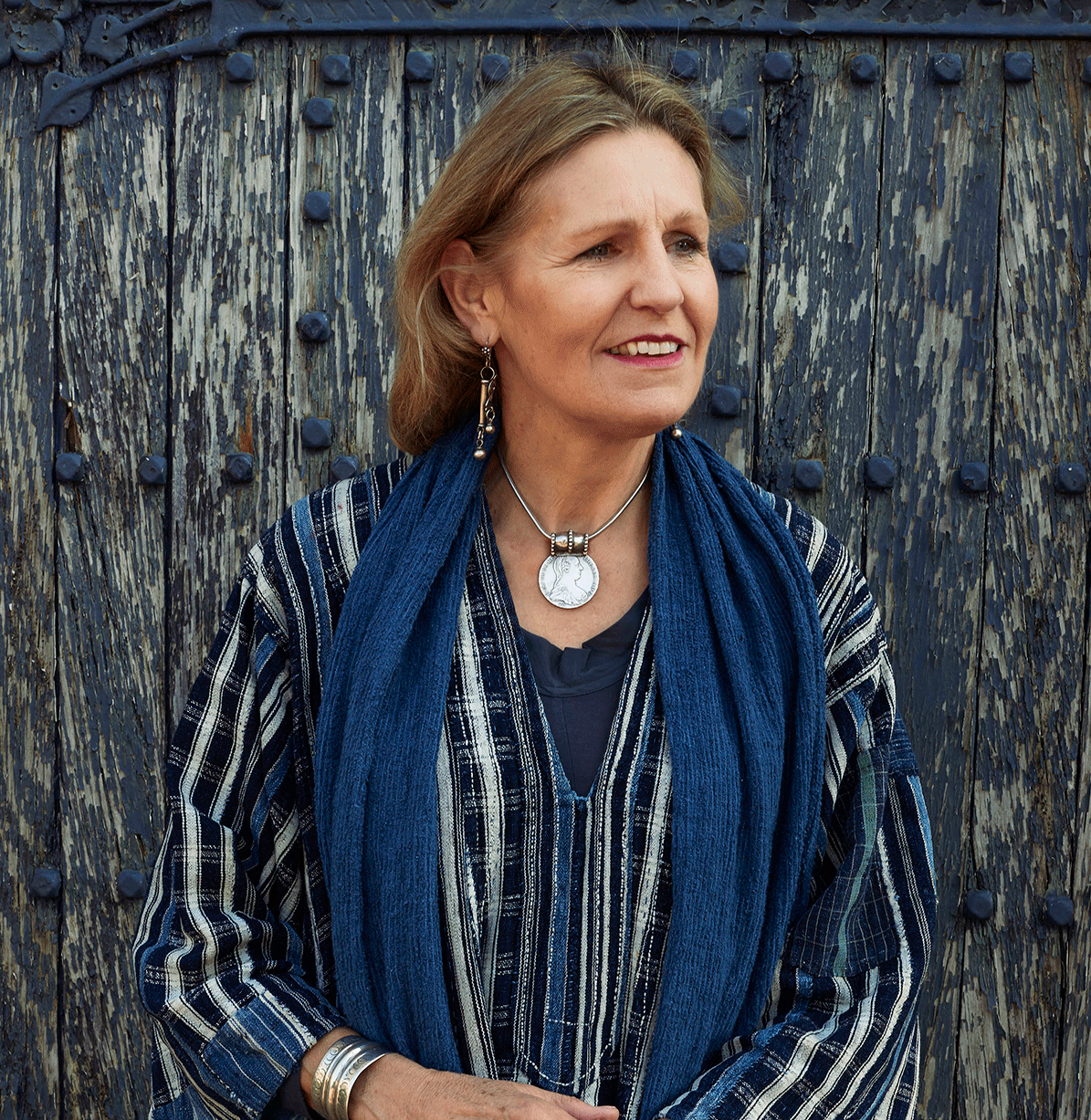Deeper than Indigo: An Interview with Jenny Balfour Paul
To accompany Jenny's appearance at the Penzance Poetry Festival, Day Lilico interviews her about passions for history and travel, and her recent book Deeper than Indigo.
Jenny Balfour-Paul is an indigo expert, writer, lecturer on Arab and Islamic Studies at Exeter University, and an avid traveller. This weekend at the Penzance Literary Festival, we were gifted with a chance to hear her talk about her latest book: Deeper Than Indigo (2015), a combination memoir and reimagining of the journeys of explorer Thomas Machell.
“Travelogue, memoir, detective story, love story – her book is partly each of these and wholly compelling… Balfour Paul makes him [Machell] live on the page.”
DL: What was it that first attracted you to indigo?
JBP: Travelling overland to India as a teenager opened my eyes to the world of textiles and their colours. The first object I ever acquired (exchanged for a pair of jeans) was an Afghan carpet bag of madder and indigo. In my early twenties, I lived in the Middle East and North Africa, where I saw wonderful weaving and dyeing, learnt batik and experimented with dyes.
Returning to UK, I met Susan Bosence, a well-known dyer and block printer who lived in Devon. When my husband and I travelled to Yemen in 1983 and found dyers still working in traditional ways, Susan urged me to return and record their work. This fieldwork launched my career because I became hooked on indigo, the world’s best-loved and only natural blue dye for more than five millennia. Its incredible story crosses the disciplines and today I’m involved in worldwide revivals of sustainable organic indigo.
DL: Have you always been interested in history/memoirs?
JBP: Actually, I was bored in history lessons at school. However, once I started travelling I became fascinated by history – it's almost impossible not to be when you visit cities like Istanbul and Kabul for the first time.
I started writing diaries and letters as a young child and have always been interested in people's varied lives, and the interplay between time, culture, external events and inner lives. Like most writers, I'm fascinated by what lies between the lines.
The word 'Indigo' led me to Thomas Machell's mid-19th century journals, and the writings of this unconventional young Victorian man were so intriguing they led to my latest book Deeper than Indigo, which merges Machell's memoirs with my own.
DL: What was your favourite city or country to visit?
JBP: It's hard to answer this but Yemen stands out and the destruction and suffering there now makes it all the more poignant. Sailing by cargo ship to the Marquesas Islands, the most remote archipelago on earth, was also a highlight, as was an indigo research trip to south-west China when it has only just 'opened' to Westerners.
DL: Which writers inspired you, other than Thomas Machell?
JBP: There are so many! As a child, I got lost in Enid Blyton’s The Wishing Chair, and was later entranced by The Secret Garden. E.M. Forster’s Passage to India and Melville’s Moby Dick were strong teenage influences, and more recently, travel/history books such as Hopkirk's The Great Game, or novels based on Asian history such as Amitav Ghosh's The Glass Palace.
DL: What projects would you like to work on in the future?
JBP: The WW2 diary of a captured soldier came my way by serendipity after I wrote an article I wrote on 'Battlefield Tourism'. I am planning a story based on this account, which includes a lost love and families reunited, set in Ukraine and elsewhere.
I am also working on a donation of Arab textiles and artefacts to the Pitt Rivers museum that will lead to talks and articles, and am researching with colleagues a rare early 18th century dyers' archive in Southwark.
DL: Why did you decide to come speak about your work at Penzance Literary Festival?
JBP: I am a Westcountry girl born near Plymouth and all my primary schooling was there. We constantly crossed the Tamar to the Cornish side, so Cornwall has been in my life since birth. In the days when nobody had heard of Port Isaac I bought a flat there with a friend and find it an ideal writing retreat. I edited much of Deeper than Indigo sitting on a favourite rock in Port Gaverne, over the hill from Port Isaac.
I have friends in Penzance, notably the well-known novelist Sara MacDonald. Patrick Gale came into my life thanks to his North Cornwall Book Festival, and thanks to Patrick I have met many wonderful writers, including Louisa Young, and I look forward to meeting fellow Devonian Jenny Kane.
I have always loved Penzance and considered moving there when I sold my Devon house. I feel at home in quirky ports on the edge, with the strength to withstand the battering of winter storms, and long maritime histories. I think lit fests by the sea have something very special about them – I spoke at Budleigh last year and appear at Appledore soon, so Penzance is for me part of an unbeatable trilogy.
Jenny has written two other books about indigo, Indigo in the Arab World and Indigo: Egyptian Mummies to Blue Jeans. For more information about her latest book, visit https://deeperthanindigo.com/
by Day Lilico




